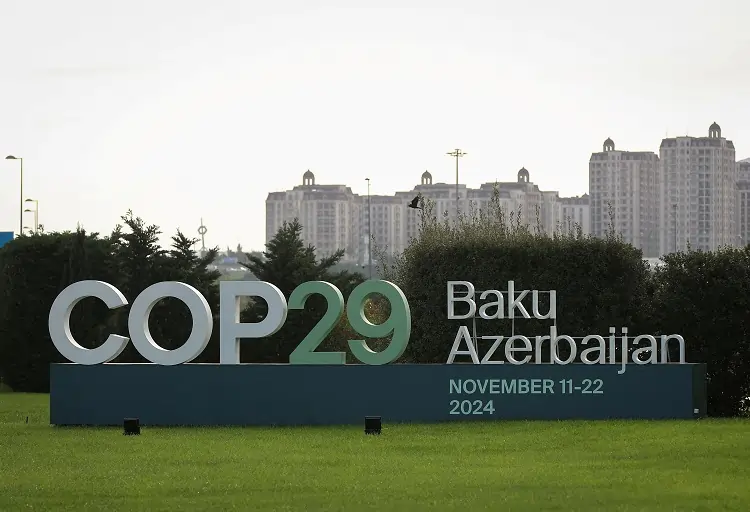
By Kate Abnett
BRUSSELS (Reuters) – China has requested that countries hold talks at next week’s COP29 U.N. climate summit on carbon border taxes and other “restrictive trade measures” that Beijing says are hurting developing countries, according to a document seen by Reuters.
The request raises the prospect that mounting trade tensions between major economies could disrupt this year’s United Nations climate talks, which begin on Nov. 11 in Baku, Azerbaijan.
China, on behalf of the BASIC country group which also includes Brazil, India and South Africa, has submitted a proposal to the U.N. climate body (UNFCCC) to add talks on “concerns with climate-change related unilateral restrictive trade measures” to the COP29 agenda, the document showed.
The BASIC countries have been stern critics of the EU’s trade-related climate policies, including its anti-deforestation law and its carbon border levy, which will impose fees on imports of high-carbon goods.
China and India have criticised the carbon border levy as protectionist, and said it unfairly penalises developing countries.
The EU says it is needed to stop European industries – which pay a fee on their CO2 emissions – from being undercut by cheap imports from countries with weaker climate policies.
A UNFCCC spokesperson confirmed it had received the BASIC countries’ submission.
China’s foreign ministry did not immediately respond to a request for comment.
Unless the BASIC countries withdraw their proposal, it will be put to countries at the beginning of COP29, when they must adopt – by consensus – the conference agenda.
Any disputes over the COP29 agenda could delay the start of negotiations and cut into the time left for countries to strike deals – including their main task, to approve potentially hundreds of billions of dollars in new funding to address climate change.
What gets on to the agenda for a U.N. climate summit can have big consequences.
An agreement to add a much-disputed agenda item on financial payments for climate-caused damage at the 2022 U.N. climate summit, led to the summit creating the world’s first fund to provide this cash.
The European Union is likely to oppose the BASIC proposal, diplomats said. The EU has previously said trade issues should be discussed at the World Trade Organisation, rather than in U.N. climate talks.
A European Commission spokesperson did not respond to a request for comment.
The BASIC countries’ submission said COP29 should hold talks on developing nations’ concerns about climate policies introduced by developed countries, which affect trade.
It said countries should “collectively oppose any measures to restrict trade and investment and setting up new green trade barriers, such as unilateral carbon border adjustment measures and due diligence requirements”.
(Reporting by Kate Abnett in Brussels; additional reporting by Joe Cash in Beijing editing by Andrew Gray and Alex Richardson)


